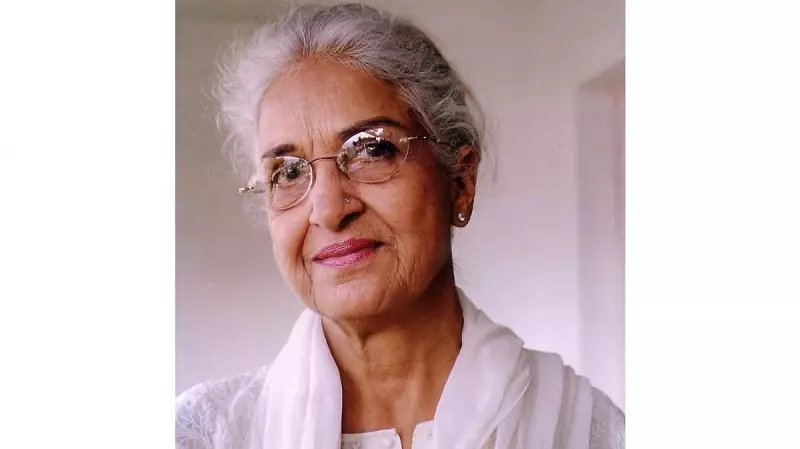
The Indian film industry mourns the loss of one of its most celebrated veterans as legendary actress Kamini Kaushal passed away at the age of 98. The iconic star breathed her last on Wednesday, leaving behind a rich legacy that spanned over seven decades in Indian cinema.
A Life Dedicated to Cinema
Kamini Kaushal, born as Uma Kashyap on January 16, 1927, in Lahore, witnessed the entire evolution of Indian cinema from the pre-independence era to modern times. Her remarkable journey in films began in the 1940s and continued well into the 2000s, making her one of the few actresses to work across such a vast timeline.
The veteran actress was living with her nephew's family in Mumbai at the time of her passing. Her death marks the end of an era for Bollywood, as she was among the last surviving stars from the industry's formative years.
Groundbreaking Career and Iconic Roles
Kaushal's career breakthrough came with the 1946 social drama Neecha Nagar, which created history by becoming the first Indian film to win the Grand Prix at the Cannes Film Festival. This achievement put Indian cinema on the global map and established her as a serious actress with international recognition.
Throughout the 1940s and 1950s, she became one of the most sought-after leading ladies, working alongside all the major heroes of her time. Some of her most memorable films include Shaheed (1948), where she starred alongside Dilip Kumar, and Ziddi (1948) with Dev Anand.
Her versatility as an actress was evident in the diverse roles she undertook, from intense dramatic performances to light-hearted romantic parts. She was particularly noted for her strong screen presence and natural acting style, which set her apart from many of her contemporaries.
Transition to Character Roles and Later Career
As she matured, Kaushal gracefully transitioned into character roles, proving her adaptability and enduring appeal. She continued to work in films through the 1970s, 1980s, and beyond, appearing in notable movies such as Insaniyat and Maa.
In a remarkable demonstration of her lasting relevance, she even made appearances in contemporary films like the 2006 blockbuster Rang De Basanti, where she played Karan Singhania's grandmother. This role introduced her to a new generation of film enthusiasts who might not have been familiar with her earlier work.
Her television appearances further expanded her reach, with roles in popular serials that kept her connected with audiences across different mediums and age groups.
Personal Life and Legacy
Beyond her professional achievements, Kamini Kaushal's personal life reflected her strong principles and independent spirit. She married filmmaker B.S. Sood in 1948, and their partnership lasted until his death in 1998.
In a rare move for actresses of her era, she continued working after marriage, balancing her professional commitments with her personal life at a time when most leading ladies retired after wedding.
The film fraternity and fans across the country have been paying heartfelt tributes to the departed star. Colleagues and admirers remember her not just for her cinematic contributions but also for her gracious personality and dedication to her craft.
Kamini Kaushal's journey represents a significant chapter in the history of Indian cinema. From the black-and-white era to color films, from studio systems to modern production methods, she adapted and excelled through every transformation the industry underwent.
Her passing leaves a void in the cultural memory of Indian cinema, but her extensive body of work ensures that she will be remembered and celebrated for generations to come. As one of the last connections to Bollywood's foundational years, her death truly marks the end of a glorious chapter in Indian entertainment history.






